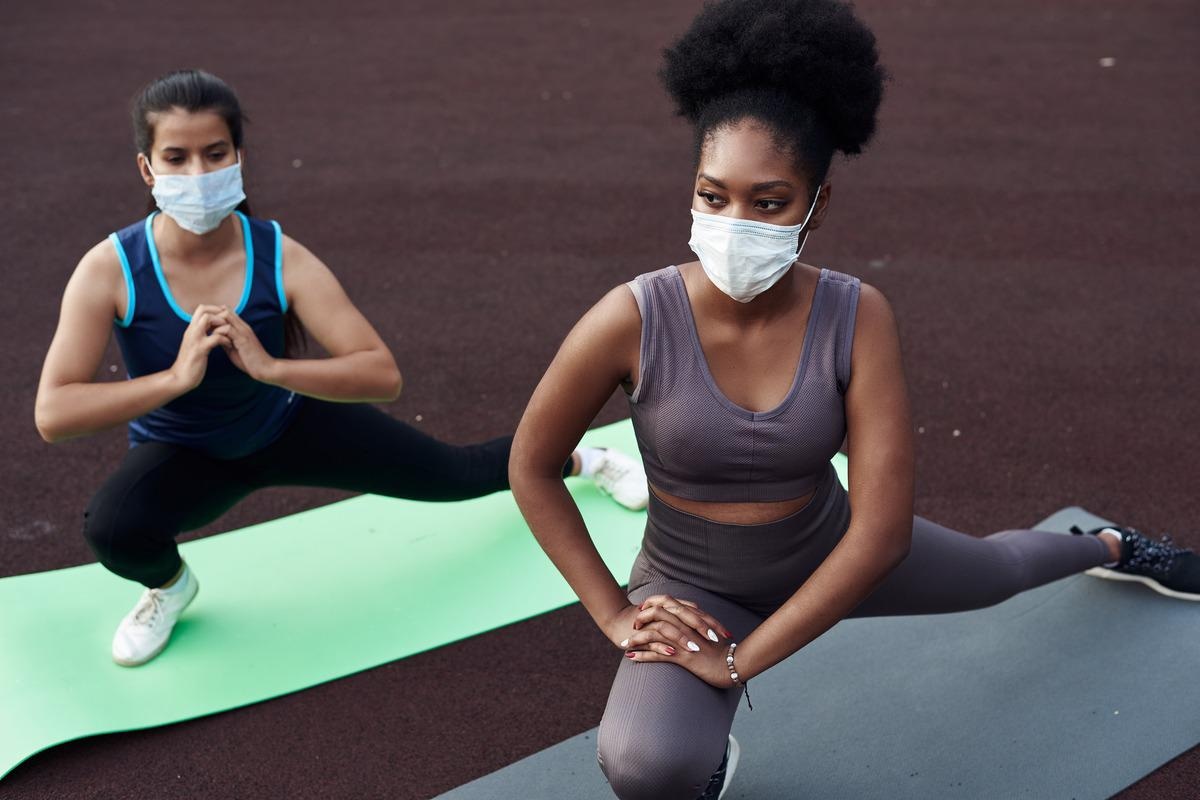A cross-sectional report from Israel demonstrated the protective effect of BNT162b2 mRNA vaccine (Pfizer–BioNTech) even after mild to moderate coronavirus disease 2019 (COVID-19). The paper is currently available on medRxiv* preprint server while it undergoes peer review.
 Study: Protective effect of BNT162b2 vaccination on aerobic capacity following mild to moderate SARS-CoV-2 infection: a cross sectional study, Israel, March-December 2021. Image Credit: etonastenka/Shutterstock
Study: Protective effect of BNT162b2 vaccination on aerobic capacity following mild to moderate SARS-CoV-2 infection: a cross sectional study, Israel, March-December 2021. Image Credit: etonastenka/Shutterstock
Background

 This news article was a review of a preliminary scientific report that had not undergone peer-review at the time of publication. Since its initial publication, the scientific report has now been peer reviewed and accepted for publication in a Scientific Journal. Links to the preliminary and peer-reviewed reports are available in the Sources section at the bottom of this article. View Sources
This news article was a review of a preliminary scientific report that had not undergone peer-review at the time of publication. Since its initial publication, the scientific report has now been peer reviewed and accepted for publication in a Scientific Journal. Links to the preliminary and peer-reviewed reports are available in the Sources section at the bottom of this article. View Sources
Following the infection with acute respiratory syndrome coronavirus 2 (SARS-CoV-2), a causative agent of the unrelenting COVID-19 pandemic, some individuals may present with a myriad of post-acute adverse health outcomes – a phenomenon known as long-COVID.
And even though in some people long-COVID symptoms are rather mild and uneventful, for others they may well be debilitating and life-changing. Still, the case definition is very broad and includes symptoms such as fatigue, headache, and problems with breathing.
Studies thus far show that vaccination could reduce the possibility of these scenarios, although the evidence is still not robust. Generating data on rates of long-COVID (and especially some specific facets of the syndrome) among vaccinated and unvaccinated is one of the pivotal next steps in elucidating the correlates of protection.
In this study, a research group led by Dr. Yair Blumberg and Dr. Michael Edelstein from Rivka Ziv Medical Center and Bar-Ilan University in Zefat (Israel) aimed to determine whether vaccination was linked to improved exercise capacity among individuals previously infected with SARS-CoV-2, i.e., following the acute phase of COVID-19.
The study
A total of forty-three individuals between the ages of 18 and 65 with documented mild or moderate COVID-19 were eligible to participate in this prospective study that was conducted in 2021 at the cardiac rehabilitation department of the Ziv Medical Centre in Israel.
Each study participant (either vaccinated with a Pfizer–BioNTech mRNA vaccine or unvaccinated) underwent a spirometry test (i.e., the most common type of pulmonary function testing), followed by a cardio-pulmonary exercise test on an individually calibrated bicycle ergometer.
Subjects were requested to maintain a continuous pedaling frequency of approximately sixty revolutions per minute, while their cardiac electrical activity was monitored with the use of electrocardiography. Moreover, blood pressure and perceived exertion have been measured every two minutes. Peak oxygen consumption and the minute ventilation/carbon dioxide production were also assessed.
The researchers have found significant differences in aerobic capacity when comparing vaccinated to unvaccinated study subjects previously infected with SARS-CoV-2. More specifically, a high proportion of unvaccinated individuals performed poorly on indicators such as peak oxygen consumption and heart rate.
If we look at the numbers, the mean peak oxygen consumption per kilogram of body weight in the unvaccinated group was 83%, while it was 95% in the vaccinated group. Furthermore, in the unvaccinated group, 50% of them had peak oxygen consumption lower than 80% of predicted vs 14% among those vaccinated.
Chronotropic incompetence in the unvaccinated group, presenting with a reduction in the peak-exercise heart rate and ventilation, contributed in turn to limited exercise capacity. Even the sub-analysis which excluded patients that had co-morbidities did not change these findings.
In a nutshell, this paper implies that patients suffering from COVID-19 can develop objective and significant limitations to exercise capacity in the months following their acute disease episode. Possible mechanisms of damage include immune-mediated pathology in the autonomic nervous system and a possible oxygen diffusion defect.
Our study is the first to show a protective effect of vaccination against decreased aerobic capacity”, say study authors in this medRxiv paper. “As a more objectively quantifiable definition of long-COVID is needed, studies able to demonstrate measurable changes post-acute infection with SARS-CoV-2 are essential”, they add.
In any case, the undoubtedly protective effect of vaccines gives additional impetus to continue and intensify the vaccine drive around the world, while studies akin to this one should be replicated on a larger scale to confirm the reported findings.

 This news article was a review of a preliminary scientific report that had not undergone peer-review at the time of publication. Since its initial publication, the scientific report has now been peer reviewed and accepted for publication in a Scientific Journal. Links to the preliminary and peer-reviewed reports are available in the Sources section at the bottom of this article. View Sources
This news article was a review of a preliminary scientific report that had not undergone peer-review at the time of publication. Since its initial publication, the scientific report has now been peer reviewed and accepted for publication in a Scientific Journal. Links to the preliminary and peer-reviewed reports are available in the Sources section at the bottom of this article. View Sources
Journal references:
- Preliminary scientific report.
Blumberg, Y., Edelstein, M., et al. (2021). Protective effect of BNT162b2 vaccination on aerobic capacity following mild to moderate SARS-CoV-2 infection: a cross sectional study, Israel, March-December 2021. medRxiv. doi: https://doi.org/10.1101/2021.12.30.21268538. https://www.medrxiv.org/content/10.1101/2021.12.30.21268538v2
- Peer reviewed and published scientific report.
Blumberg, Yair, Michael Edelstein, Kamal Abu Jabal, Ron Golan, Neta Tuvia, Yuval Perets, Musa Saad, et al. 2022. “Protective Effects of BNT162b2 Vaccination on Aerobic Capacity Following Mild to Moderate SARS-CoV-2 Infection: A Cross-Sectional Study Israel.” Journal of Clinical Medicine 11 (15): 4420. https://doi.org/10.3390/jcm11154420. https://www.mdpi.com/2077-0383/11/15/4420.